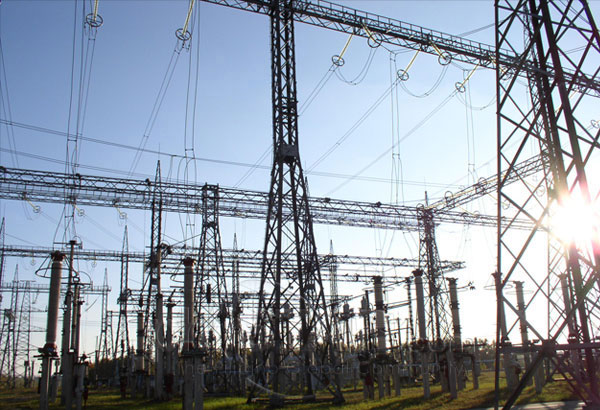Local seaweed refining firm to invest P105.65M on new plant
April 21, 2007 | 12:00am
Filipino-owned Mioka Biosystems Corp. will invest P105.65 million in a seaweed refining plant in Canlubang, Laguna.
The plant, which is expected to be completed in July 2008 will be producing 1,440 metric tons of processed seaweed or semi-refined carrageenan per year.
All the seaweed produced will be exported to the United States, Canada, Europe, Asia and Latin America.
The newly formed company said the plant will be financed by 27-percent equity and 74 percent advances from stockholders and bank loans. Upon its operation, Mioka will generate less than a hundred new jobs.
Because 100 percent of the produced seaweed will be sold overseas, the activity falls under export activities of the 2006 Investment Priorities Plan (IPP). This means that it qualifies for either fiscal or non fiscal incentives.
Aside from belonging to the IPP, the application is recommended as new project in accordance with the policies on project type statues as applicant as a newly formed corporation that will undertake new projects.
Mioka Biosystems Corp. was formed in 2005 to engage in the business of manufacturing food ingredients specifically carageenan or processed seaweed. It has an authorized capital stock of P2 million and paid up capital of P500,000.
The firm’s main product is carrageenan specifically the semi-refined food grade or the Philippine Natural Grade (PNG). There are two main types of Carrageenan Mioka Biosystem will produce, the Kappa Carrageenan and Iota Carrageenan.
Carrageenan is used by food processing companies to enhance the quality of their products. It is a natural food additive used in milk, meat, jellies and other water-based food projects.
The Department of Science and Technology (DOST) said the country is full of seaweed and the abundance could translate to a potential P100 billion revenue annually.
In a report by the Bureau of Agricultural Statistics (BAS), it said the seaweed output grew by 11.1 percent in 2005 when compared to the previous year
The BAS said a number of factors contributed to the growth, among which is the use of proper propagation and culture method. For example, the government introduced the triangular method of cultivating seaweed. The technology is a modified form of the current practice known as floating long method.
The triangular method is designed for deeper waters and is flexible enough to withstand strong winds and big waves. The technology is expected to accommodate 100,000 to 150,000 seedlings per hectare.
The province of Palawan was the top seaweed producer as it accounted for 27 percent of the seaweed production. This was followed by Tawi-Tawi which has made up 23 percent of the production. Other top seaweed producers Sulu, Bohol and Zamboanga del Sur.
The country is among the top players in the global seaweed market, supplying about 70 percent to 80 percent of the world’s Carageenan.
The plant, which is expected to be completed in July 2008 will be producing 1,440 metric tons of processed seaweed or semi-refined carrageenan per year.
All the seaweed produced will be exported to the United States, Canada, Europe, Asia and Latin America.
The newly formed company said the plant will be financed by 27-percent equity and 74 percent advances from stockholders and bank loans. Upon its operation, Mioka will generate less than a hundred new jobs.
Because 100 percent of the produced seaweed will be sold overseas, the activity falls under export activities of the 2006 Investment Priorities Plan (IPP). This means that it qualifies for either fiscal or non fiscal incentives.
Aside from belonging to the IPP, the application is recommended as new project in accordance with the policies on project type statues as applicant as a newly formed corporation that will undertake new projects.
Mioka Biosystems Corp. was formed in 2005 to engage in the business of manufacturing food ingredients specifically carageenan or processed seaweed. It has an authorized capital stock of P2 million and paid up capital of P500,000.
The firm’s main product is carrageenan specifically the semi-refined food grade or the Philippine Natural Grade (PNG). There are two main types of Carrageenan Mioka Biosystem will produce, the Kappa Carrageenan and Iota Carrageenan.
Carrageenan is used by food processing companies to enhance the quality of their products. It is a natural food additive used in milk, meat, jellies and other water-based food projects.
The Department of Science and Technology (DOST) said the country is full of seaweed and the abundance could translate to a potential P100 billion revenue annually.
In a report by the Bureau of Agricultural Statistics (BAS), it said the seaweed output grew by 11.1 percent in 2005 when compared to the previous year
The BAS said a number of factors contributed to the growth, among which is the use of proper propagation and culture method. For example, the government introduced the triangular method of cultivating seaweed. The technology is a modified form of the current practice known as floating long method.
The triangular method is designed for deeper waters and is flexible enough to withstand strong winds and big waves. The technology is expected to accommodate 100,000 to 150,000 seedlings per hectare.
The province of Palawan was the top seaweed producer as it accounted for 27 percent of the seaweed production. This was followed by Tawi-Tawi which has made up 23 percent of the production. Other top seaweed producers Sulu, Bohol and Zamboanga del Sur.
The country is among the top players in the global seaweed market, supplying about 70 percent to 80 percent of the world’s Carageenan.
BrandSpace Articles
<
>
- Latest
- Trending
Trending
Latest
Trending
Latest
Recommended






























